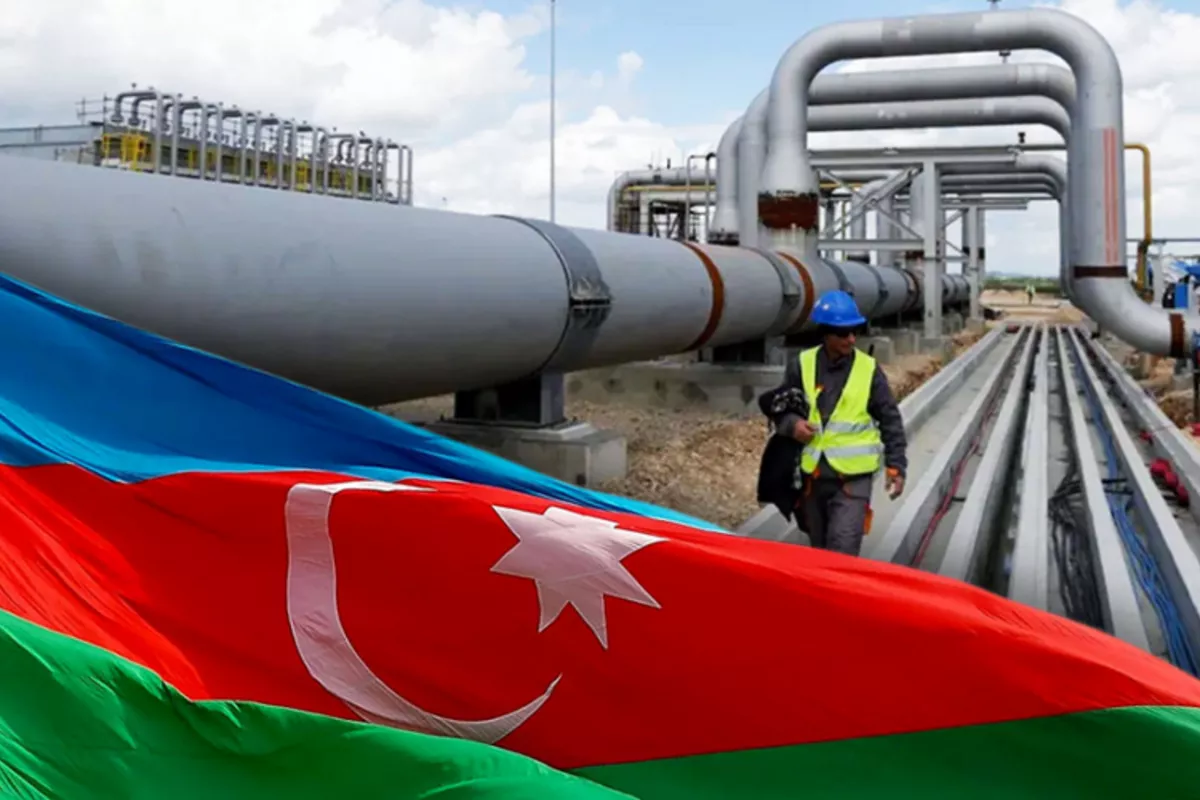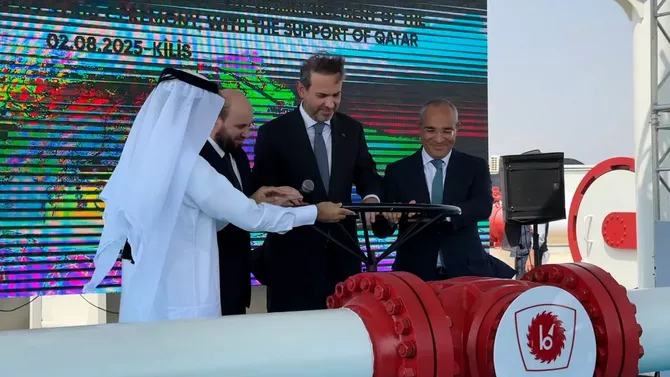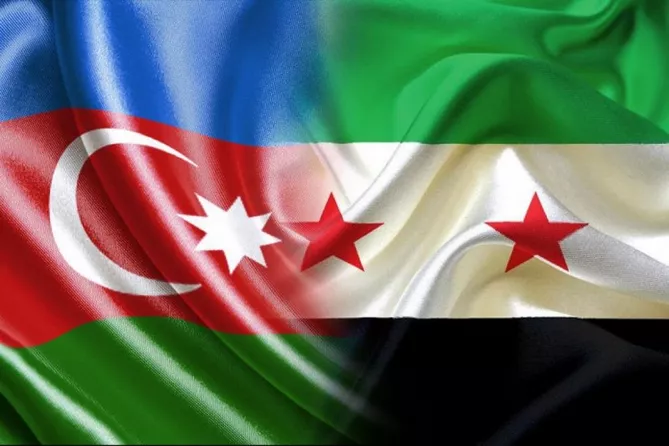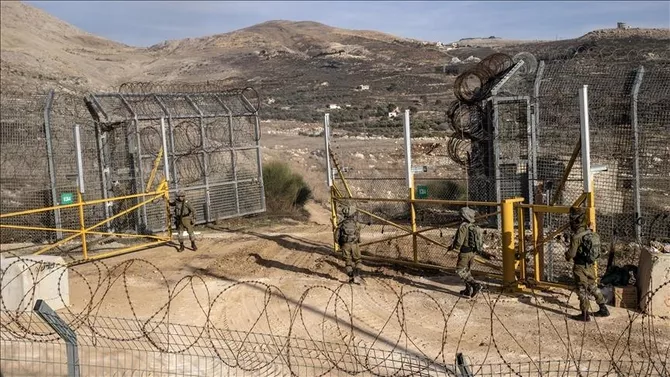
In politics, as in everyday life, it is very important to have reliable friends. Throughout history, various states have formed blocs, alliances, and coalitions. Some of these unions did not withstand the test of time, while others continue to exist to this day. Many still remember the Warsaw Pact, but few today could explain what the Baghdad Pact, CENTO, or SEATO were. Nevertheless, alliances have always been created, and if they were based on economic interests, they have tended to function successfully - for example, NATO and the EEC.
Recently, a new, fairly strong, and in many ways promising player has appeared on the international stage - one that has managed to become a leading factor in the South Caucasus. Today, the Republic of Azerbaijan is asserting itself as an active regional power in the Middle East as well. On August 2, 2025, Baku began supplying natural gas to Syria through the Turkish city of Kilis. It is expected that Azerbaijani “blue fuel” will meet the electricity needs of 1.6 million households in the Syrian Arab Republic.
This event was the result of a meeting between the President of the Republic of Azerbaijan, Ilham Aliyev, and the transitional President of the Syrian Arab Republic, Ahmed Al-Sharaa. On April 11, the Minister of Economy of Azerbaijan and Chairman of SOCAR’s Supervisory Board, Mikayil Jabbarov, speaking about Azerbaijan’s strategic energy projects, noted that all of them play a decisive role in ensuring regional and global energy security. In the future, the Kilis-Aleppo pipeline branch is planned to be extended to Homs Province. Azerbaijan’s active role in the region, in addition to its economic benefits, may help establish lasting peace there.

Photo: Euronews
Recently, Baku has undertaken a mission to reduce tensions between Damascus and Jerusalem. The Syrian government recently confirmed indirect contacts with Israel aimed at returning to the 1974 agreement on the disengagement of Syrian and Israeli forces. At the end of June, Israeli Foreign Minister Gideon Sa’ar stated that Israel is interested in concluding a peace agreement and normalizing relations with Syria. Against this backdrop, the capital of Azerbaijan hosted a meeting between Syrian Foreign Minister Asad Hassan al-Shibani and Israeli Strategic Planning Minister Ron Dermer. According to sources, the parties discussed stabilizing the situation on Israel’s northern border.
The meeting marked the first direct contact between Israel’s security establishment and the new Syrian leadership. Prior to this, talks in Baku had been conducted between Israeli and Turkish officials representing the interests of the new Syrian authorities.
The Baku negotiations took place amid recent statements by U.S. President Donald Trump about plans to ease sanctions on Syria - a move seen as a potential step toward Damascus joining the “Abraham Accords.” It is also expected that Azerbaijan will join these accords. According to the Atlantic Council, in addition to Azerbaijan, Israel would like Kazakhstan to join as well. The reality of such developments is supported by the fact that the main round of talks between Jerusalem and Damascus took place in Baku on July 31. In Israel, it is believed that this event gives the process “the necessary political backbone” and increases the chances of achieving a real breakthrough toward lasting peace in the region.

Photo: TREND
It should be noted that prior to this meeting, Baku had already hosted contacts between a representative of the Syrian government and Israeli military and intelligence officials. Israel was represented by the head of the IDF General Staff Operations Directorate, Major General Oded Basiuk, and members of the National Security Council; the Syrian side was represented by senior figures from the transitional government. President Ilham Aliyev of Azerbaijan has played a significant personal role in these contacts, providing strong diplomatic support for the negotiations. Given its economic projects and political ties with both Syria and Israel, Baku is becoming an increasingly important political and economic bridge between the two countries. Jerusalem does not rule out that the “Azerbaijani vector” could help lay the foundation for future normalization with Damascus.
Analysts believe that if the Baku talks result in the successful signing of a framework security agreement, it would become the first formal document between Israel and Syria since 1974. Thus, the “Baku format” could set a precedent for a new kind of regional diplomacy, where the key role is played not by superpowers but by local mediators with a practical interest in stability. If this process continues, the Middle East may witness former enemies - with the support of strategic allies - reaching mutual understanding.

Photo: Anadolu Agency
Against this backdrop, the statement of Iranian President M. Pezeshkian sounded quite encouraging. He said: “We have kinship ties with Azerbaijan. How is it possible that I do not go there and reach an agreement, and Israel comes and does it?! What is our problem that we could not establish friendly and healthy relations with our brothers and sisters, but Israel came and gained influence there? We are to blame - they are not to blame.” Thus, he made it clear that responsibility for the unsatisfactory state of relations with Azerbaijan lies on the Iranian side, which for years has fueled tension in the region by supporting expansionist and extremist forces.
Of particular note is his mention of Azerbaijan-Israel relations. Judging by the rhetoric of the President of the Islamic Republic of Iran, his statement reflects a new outlook among certain circles seeking to bring the country out of isolation. It is known that as a result of the 12-day war, the IRI suffered a serious defeat, leading to some disarray within the ruling elite. The country is now frantically looking for a way out of the current situation, which is aggravated by severe drought, electricity shortages, growing public dissatisfaction, and instability in various regions. More and more Iranians are demanding change and an end to confrontation with neighboring countries.
It seems that in the near future, the Middle East may become completely different - and thanks to the active cooperation of the countries within it, it may turn into an oasis of peace and prosperity.
Share on social media